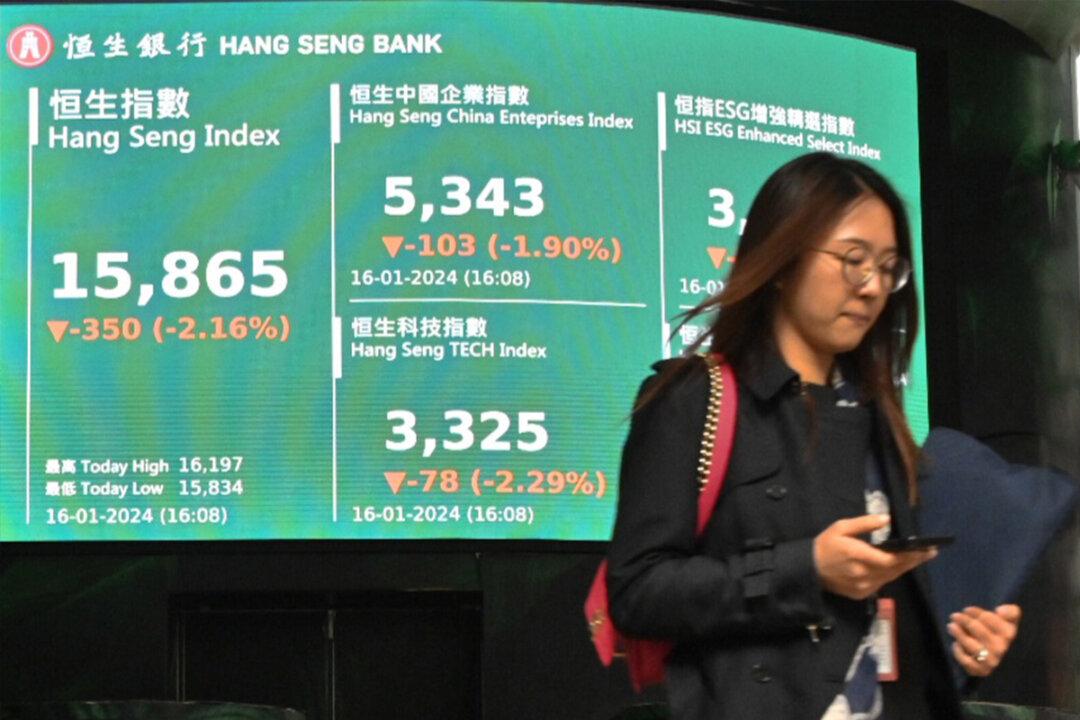The mainland’s economy is extremely weak, and the market has long been expecting the authorities to put forward a range of effective measures to rescue the market to support the important pillars, such as the domestic housing sector, which is on the verge of collapse. However, such measures are nowhere in sight. To date, after entering the new year, the stock market is still showing no sign of improvement. Since the first business day of the new year, there was only one day that recorded a rise; the rest were all in the red.
The Hang Seng Index (HSI) fell another 350 points Jan. 16, closing below the 16,000 mark at 15,865, and dropped a further 589 points on Jan. 17 to 15,276, setting the lowest closing in 14 months.




